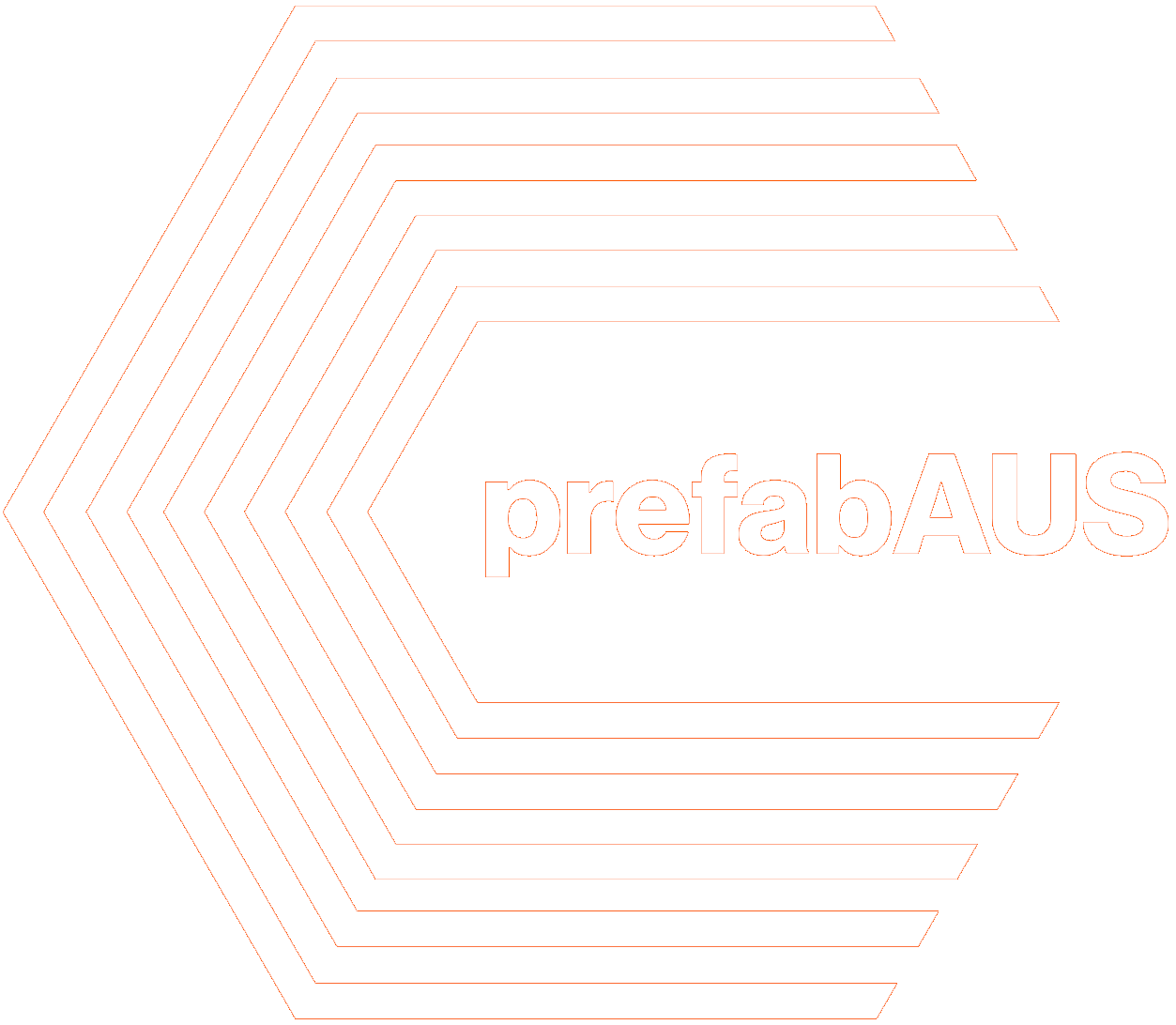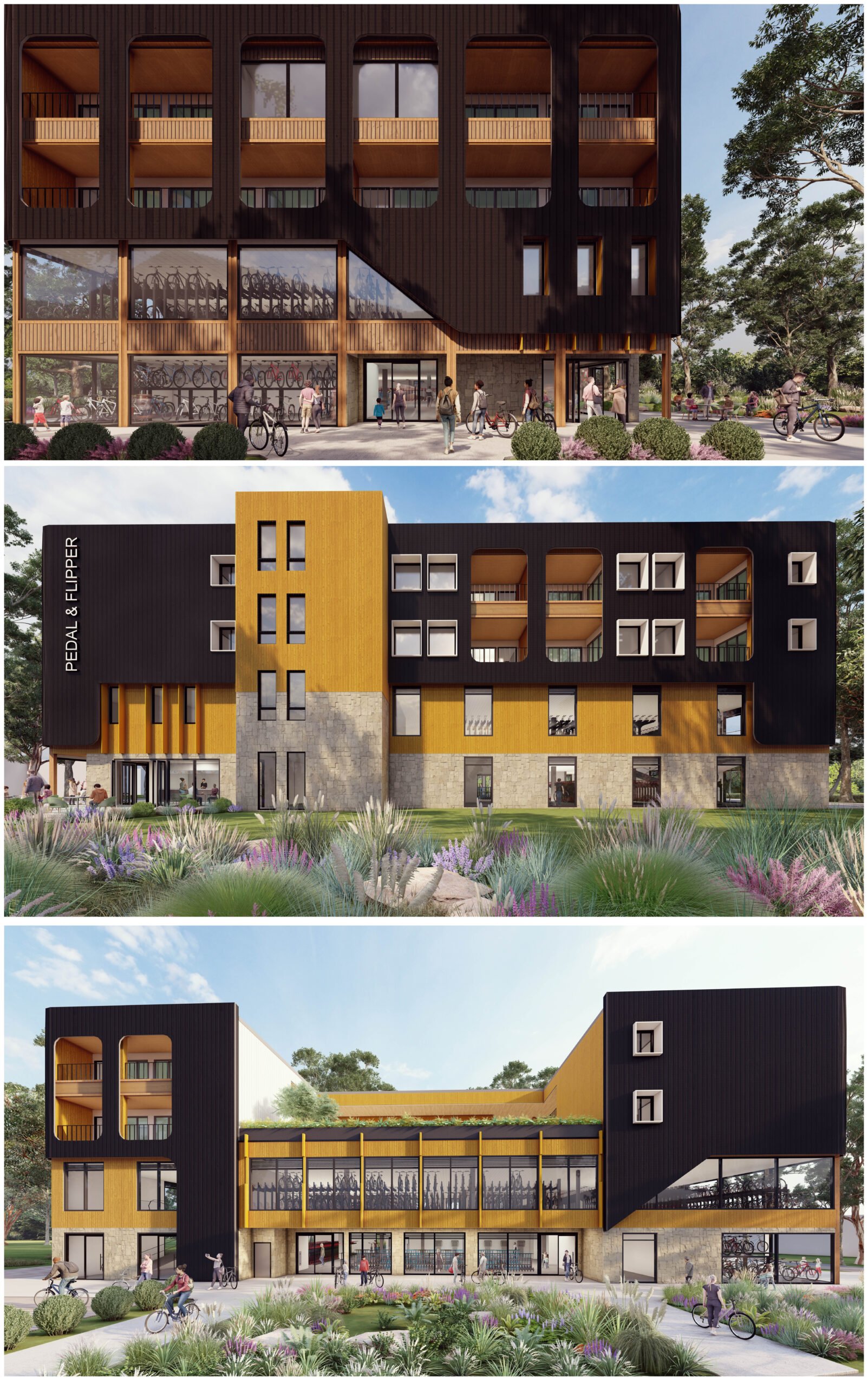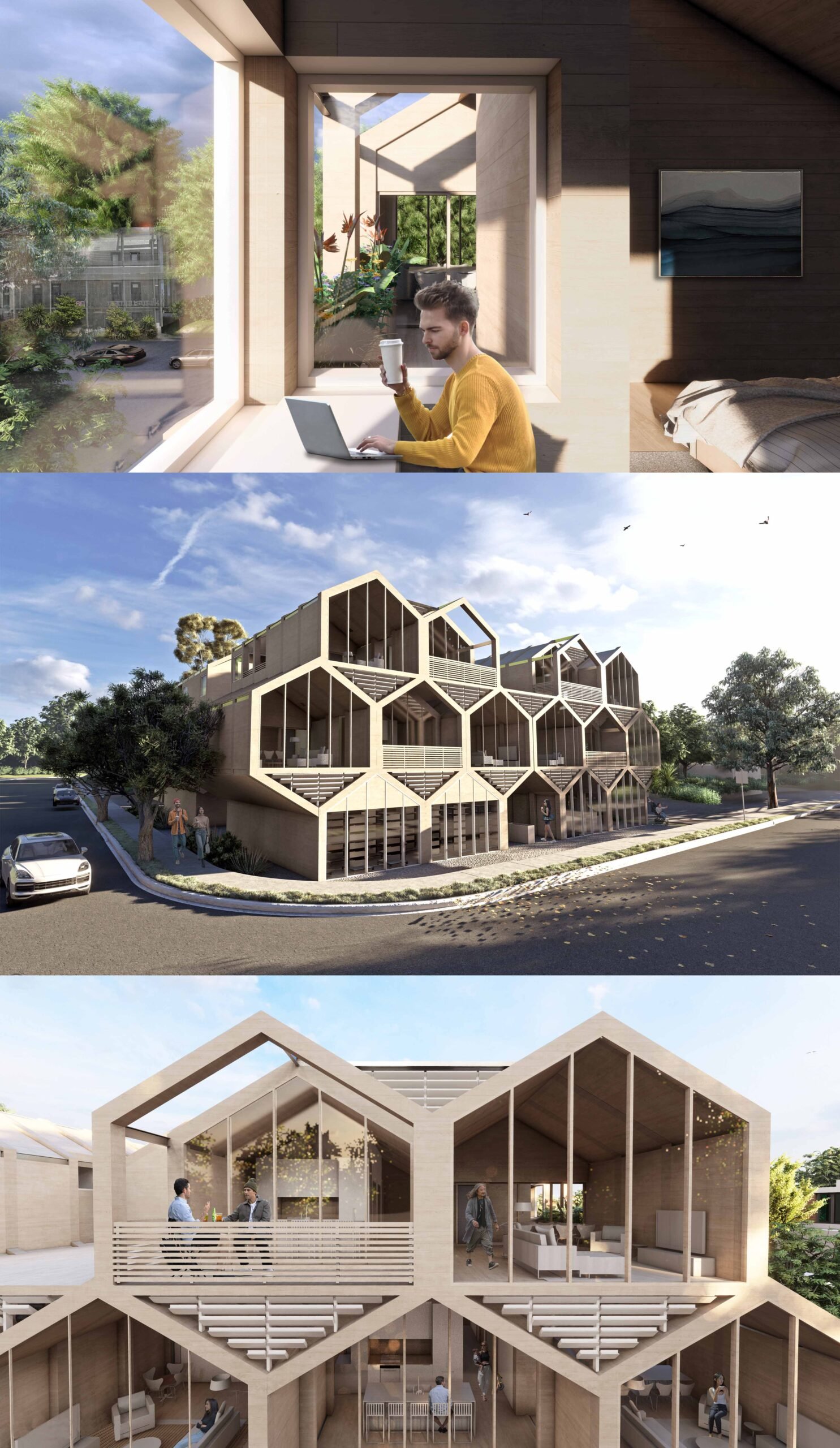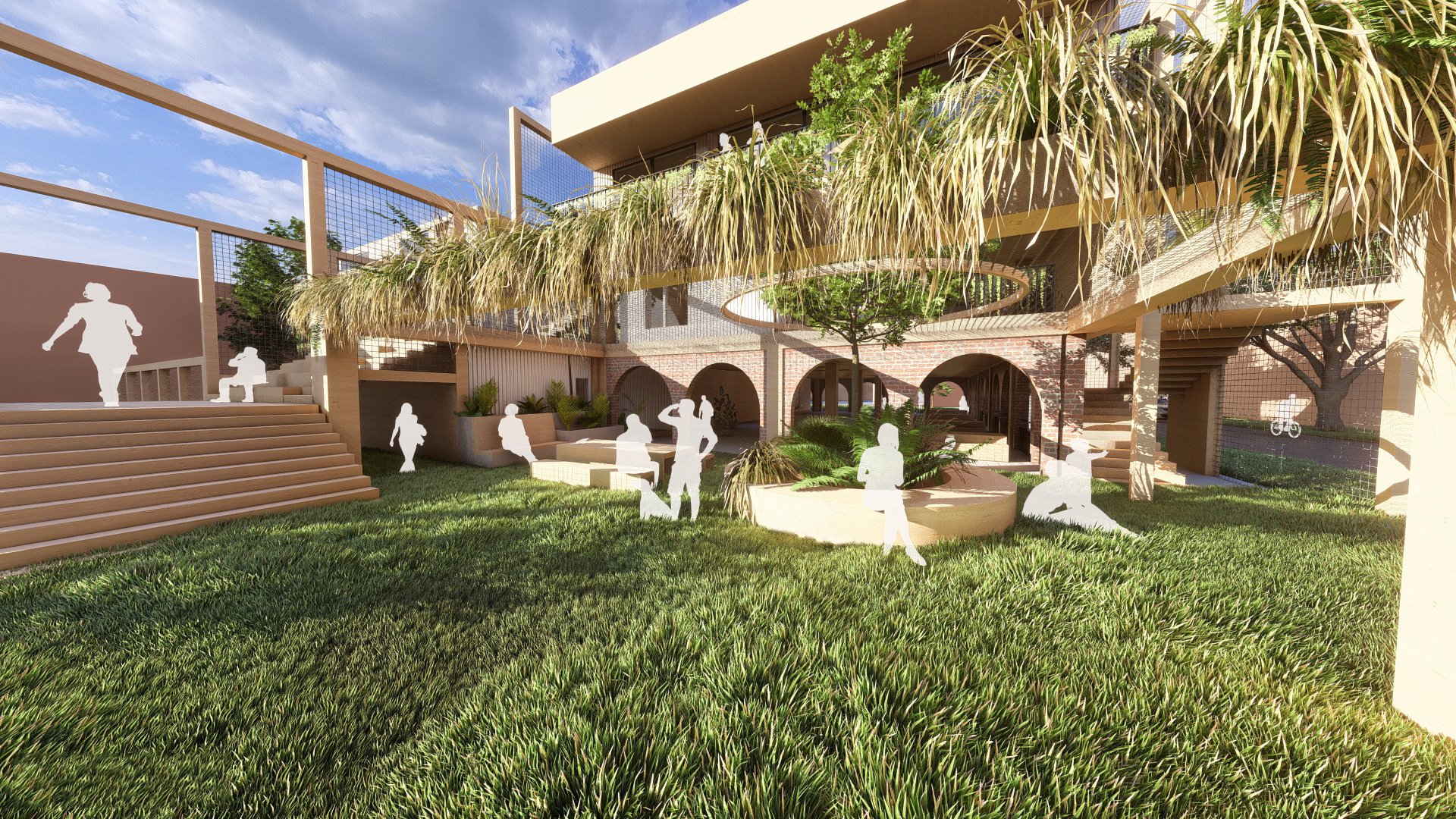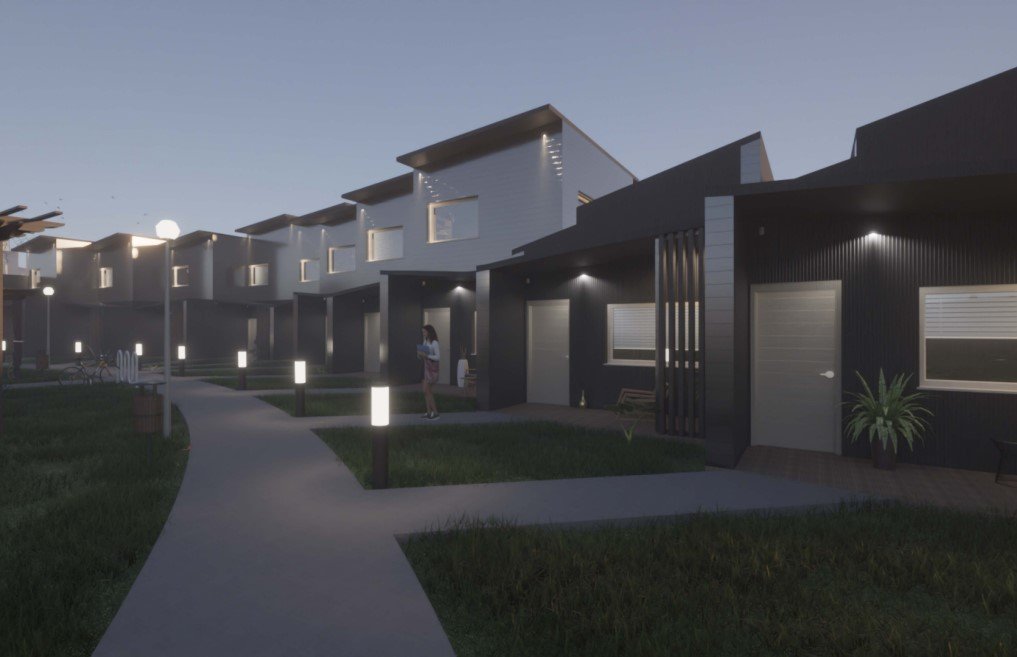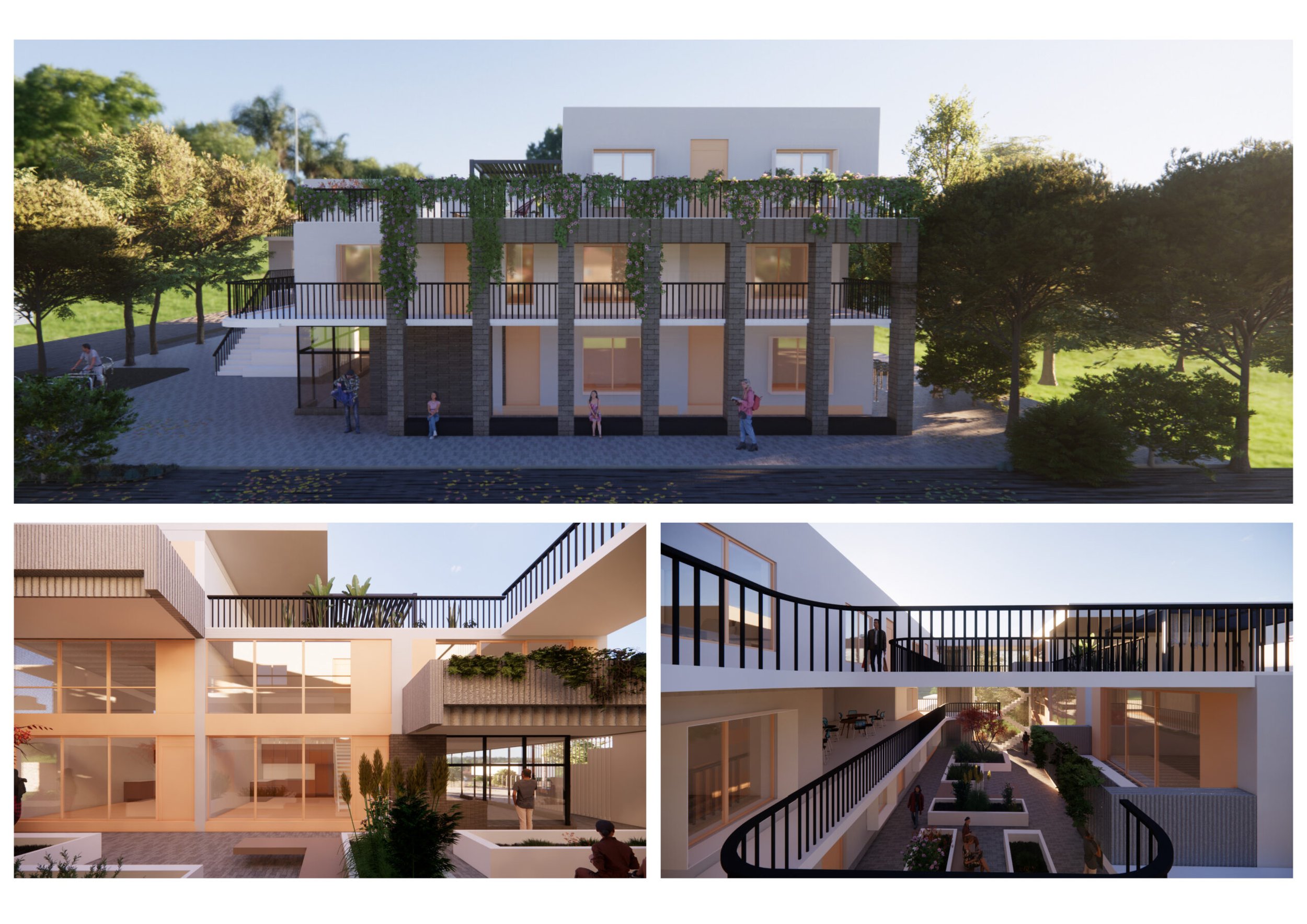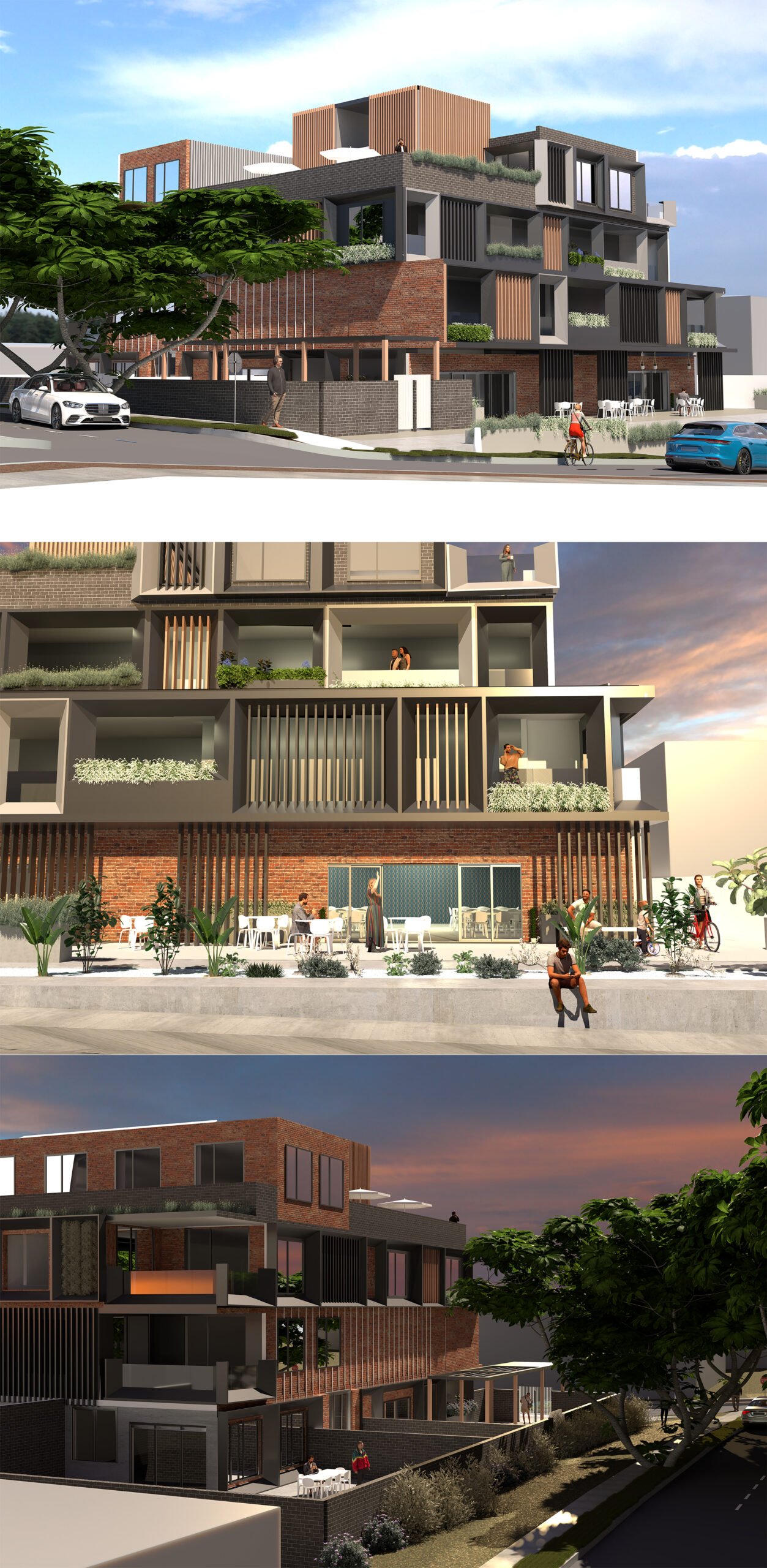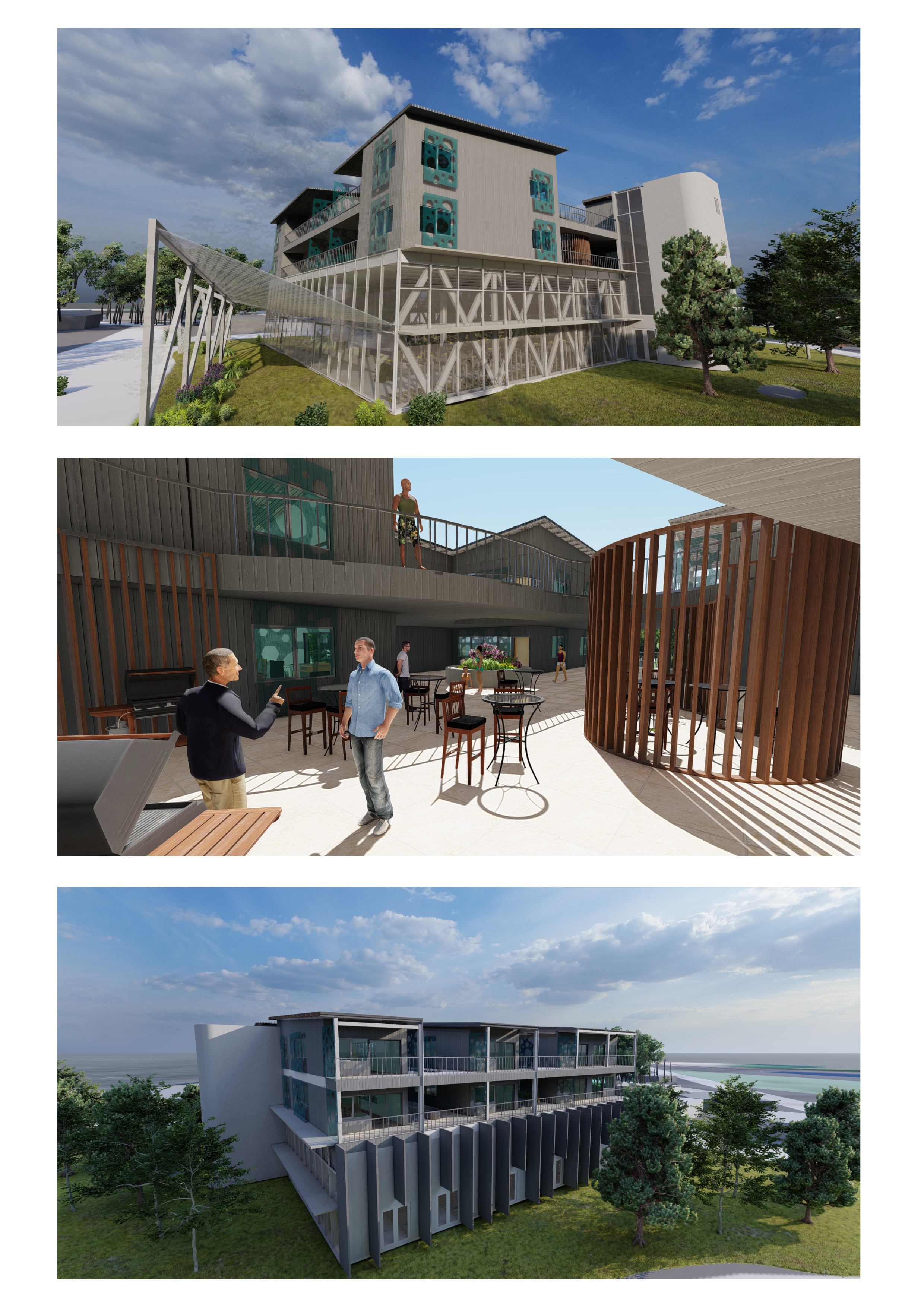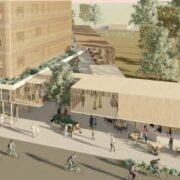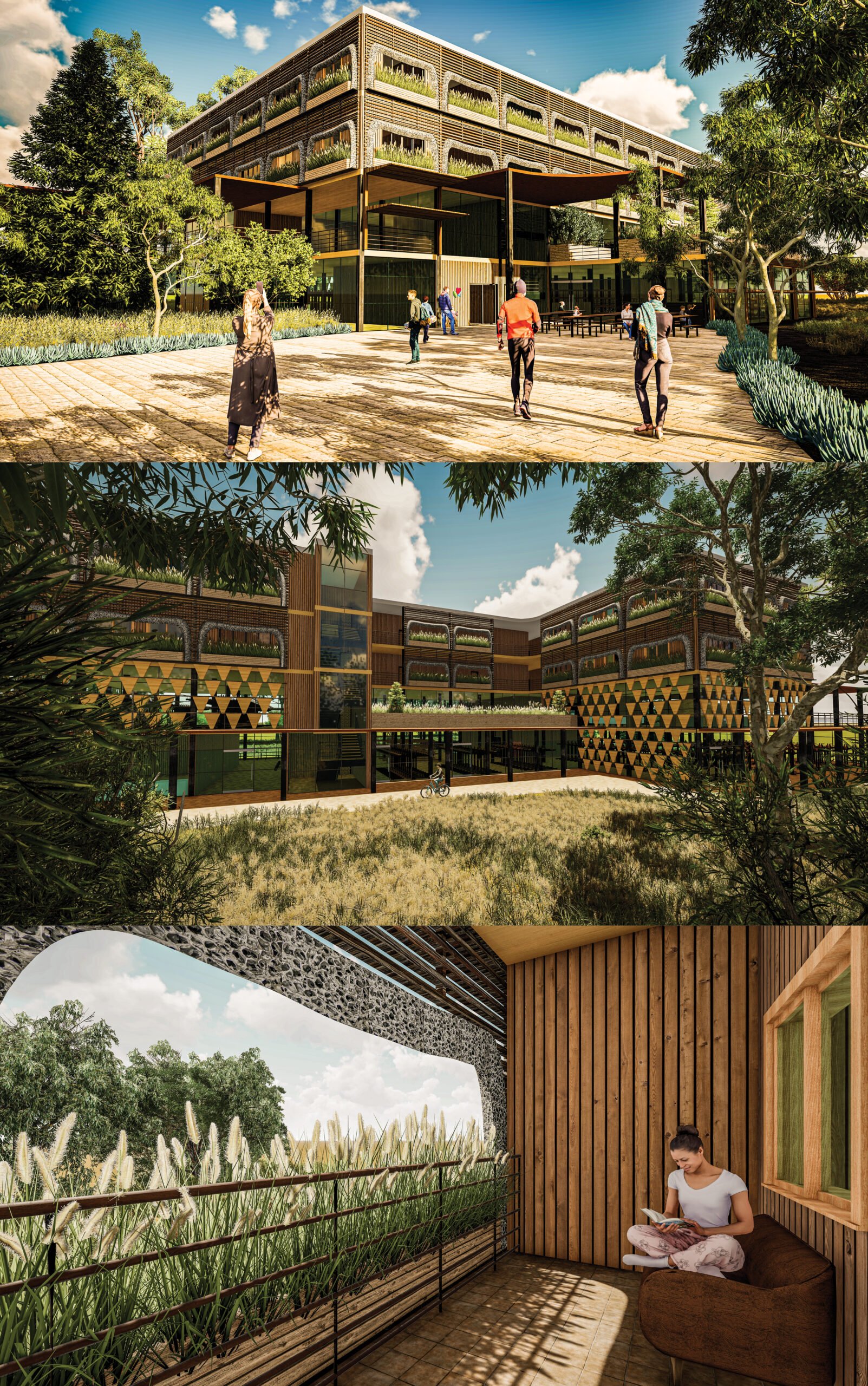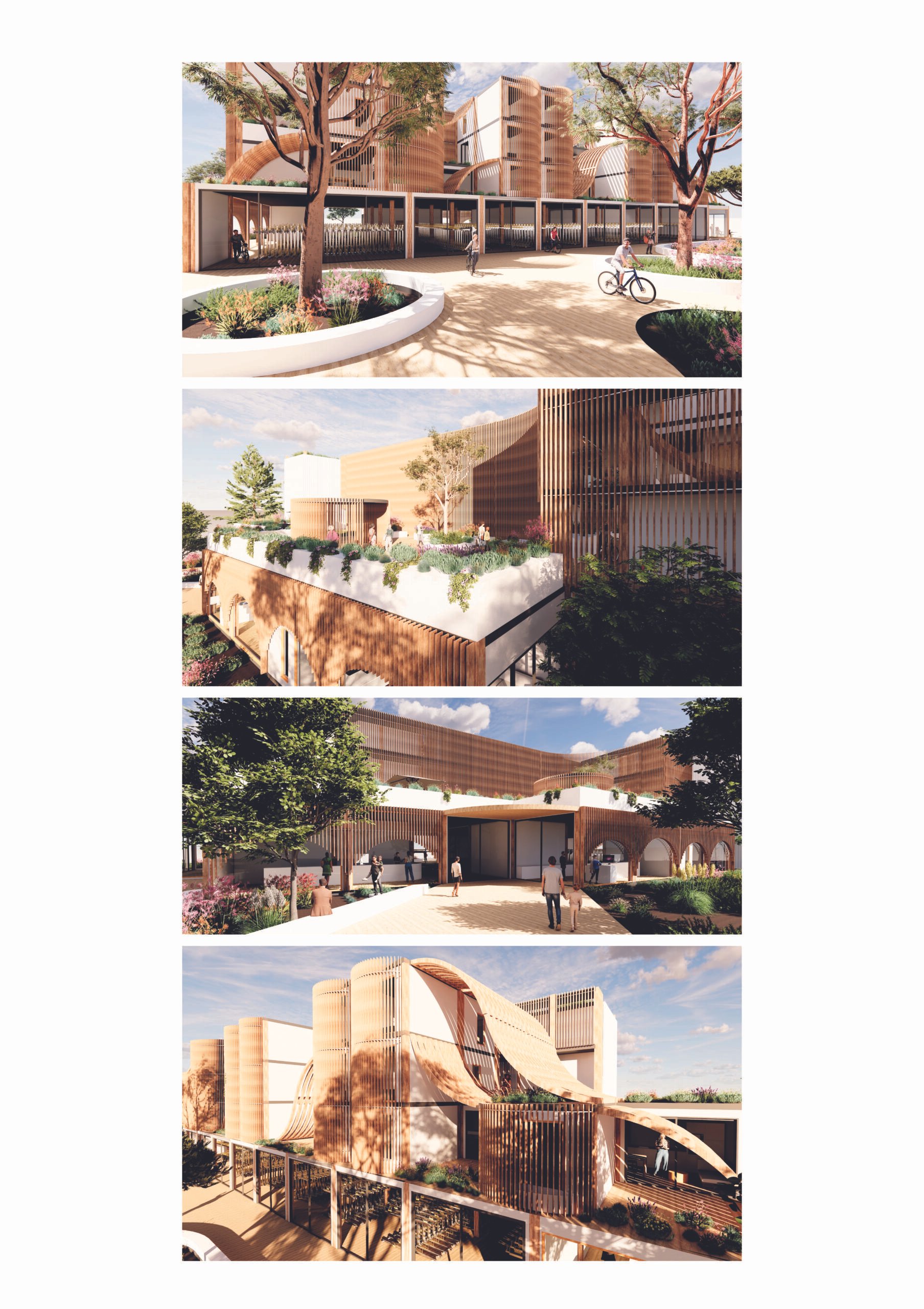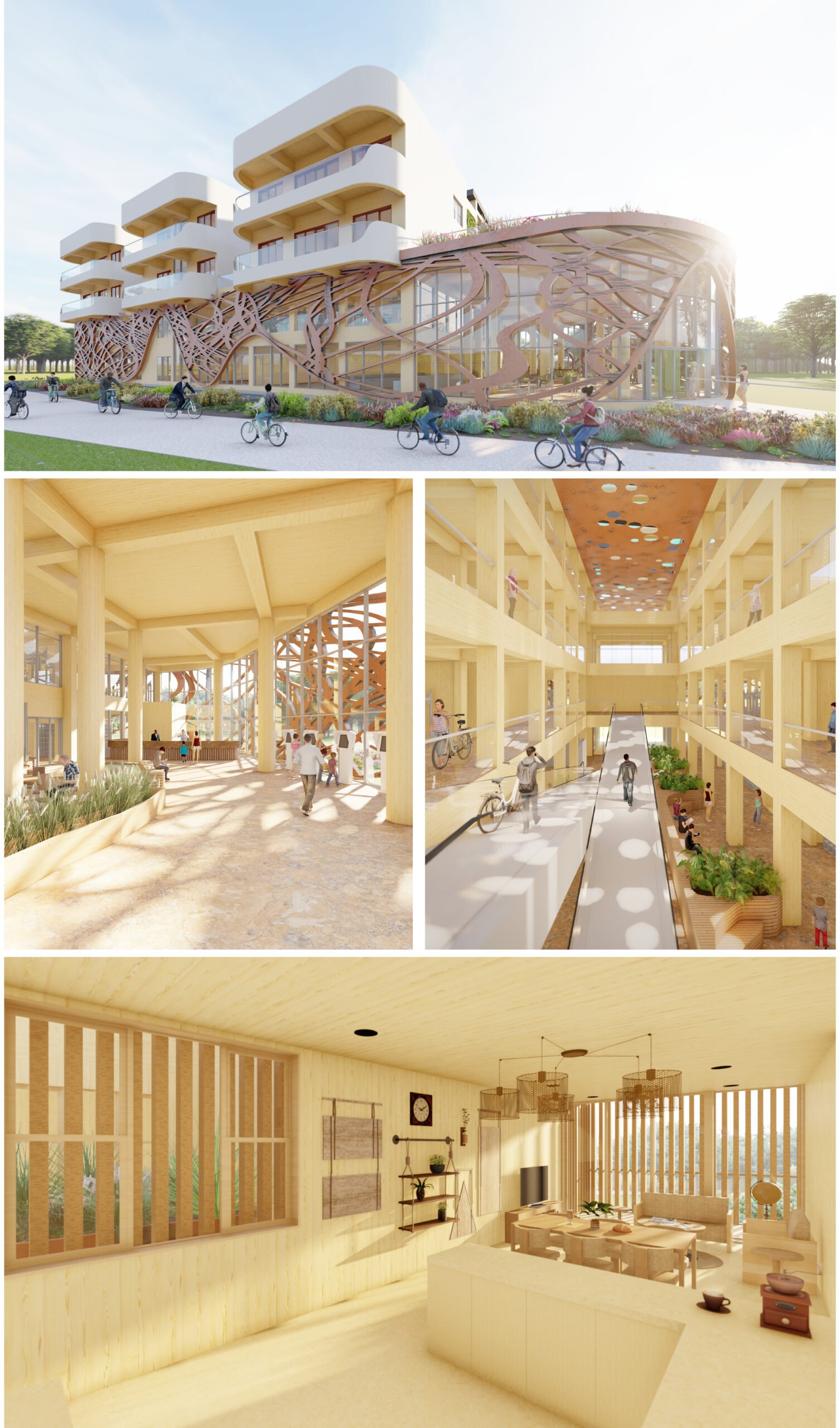
Challenge Cup 2023 Submissions
BUILDING FOR THE FUTURE; NOW
The 2023 Challenge Cup competition theme; “Building for the Future; NOW” looks to address the materials supply and embodied energy agenda driving the increasing need for agile architecture, continuously evolving and developing our buildings for future use. Students are asked to explore new ways to leverage the unique value proposition of prefabrication and modular building by employing extraordinary design and technical innovation that cannot be matched by traditional construction methods.
With increasing resource scarcity, inflated construction costs and supply chain sovereignty challenging the construction sector, teams are asked to adopt a mindset of long-term value creation over short-term market demands by harnessing offsite construction and prefabrication solutions to develop design solutions for a multi-level unit typology with a building design that can be readily modified, delivered in multiple configurations and with maximum flexibility to accommodate more than one façade type.
Submissions
The proposed Quokka Quarters redevelopment of Pedal & Flipper seeks to meet growing demand for sustainable, community-orientated developments, incorporating a four-level development that would see the hire facility occupy the first two floors and two floors of residential units above that.
Situated at 65 – 69 Waverley Road in Malvern East in Melbourne, the Hexa-Cell Residence is a testament to innovative, cost-effective, and sustainable architecture.
The Baleen project imagines not only modular holiday accommodation apartments on Wadjemup but also open source architecture that will have global impact.
The Archi International proposal for Malvern East in Victoria centres on a panelised building system built on the principles of net zero, material upcycling, disassembly, community engagement, sustainability and the promotion of longevity through a recycling life cycle.
Project XII aims to provide an innovative solution that will revolutionise residential building in New South Wales. The project focusses on amenity and adaptability for residents, affordable and fast design and construction, and community activation.
This proposal for Malvern East in Melbourne centres on the concept of a stacked neighbourhood that promotes wellbeing of the community through social interactions and connection with nature.
The DAMS project for Malvern East looks to use the potential of traditional foundations to unlock opportunities in innovative design.
This proposal consists of a system of modular apartments that can be disassembled and reassembled in different configurations and locations on the east coast of Wadjemup (Rottnest Island), a popular holiday destination off the coast of Western Australia.
The proposed Quokka Quarters redevelopment of Pedal & Flipper seeks to meet growing demand for sustainable, community-orientated developments, incorporating a four-level development that would see the hire facility occupy the first two floors and two floors of residential units above that.
The Pedal & Flipper Precinct project embodies sustainability and innovation, with its plan to upgrade a hire facility on WA’s Rottnest Island and add to the complex through the installation of 10 modular apartments and community spaces.
This reimagining of Rottnest Island’s Pedal & Flipper demonstrates a variety of strategies that aim to foster a community centred around bike culture and complement the existing diving and tourism culture that is unique to Rottnest.
Wave is inspired by the local natural and built character of Rottnest Island, with the coastline and sand dunes informing its sweeping and fluid form. The aim of incorporating curved timber façades and screens was to demonstrate the possibilities of modular architecture to look different than people expect and investigate its ability to be integrated within a site to look cohesive and intentionally-designed.
Climate change is the existential crisis of our times and something this redevelopment of Pedal & Flipper seeks to tackle through the use of design for manufacture and assembly and a variety of other innovations.
The New Heart Pedal & Flipper redevelopment scheme embraces sustainability by ensuring that every unit is composed of recycled steel, which significantly reduces CO2 emissions in construction, in addition to reducing energy and iron ore required.
